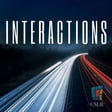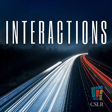
Monday Read: Religious Exemption Laws and the Conservative Legal Movement
In today’s episode, we hear from Elizabeth Reiner Platt and her Canopy Forum article “Religious Exemption Laws and the Conservative Legal Movement.”
Adapted from “Parading the Horribles: The Risks of Expanding Religious Exemptions,” which was co-authored by Platt, the article explains how conservative Christians have disproportinately benefited from the right to free exercise of religion. “In recent years,” says Platt, “religious exemptions have been used to advance not only conservative religious beliefs about sex, marriage, and reproduction but also the broader goals of the conservative legal movement.”
Platt examines three ways in which religious exemptions have been used to advance the goals of the legal conservative movement: by confining the administrative state, deregulating the public marketplace and shifting government funds to private entities.
“Religious exemptions have undercut emergency public health orders, curbed oversight of religious schools and childcare facilities, limited worker protections and union organizing, and undermined laws prohibiting discrimination and harassment,” says Platt. “The expansion of religious exemptions may therefore be seen not only as an effort of the religious right, but as one facet of the larger conservative legal movement’s commitment to deregulation and privatization.”
Read the original article on Canopy Forum.
Browse our book brochure.






